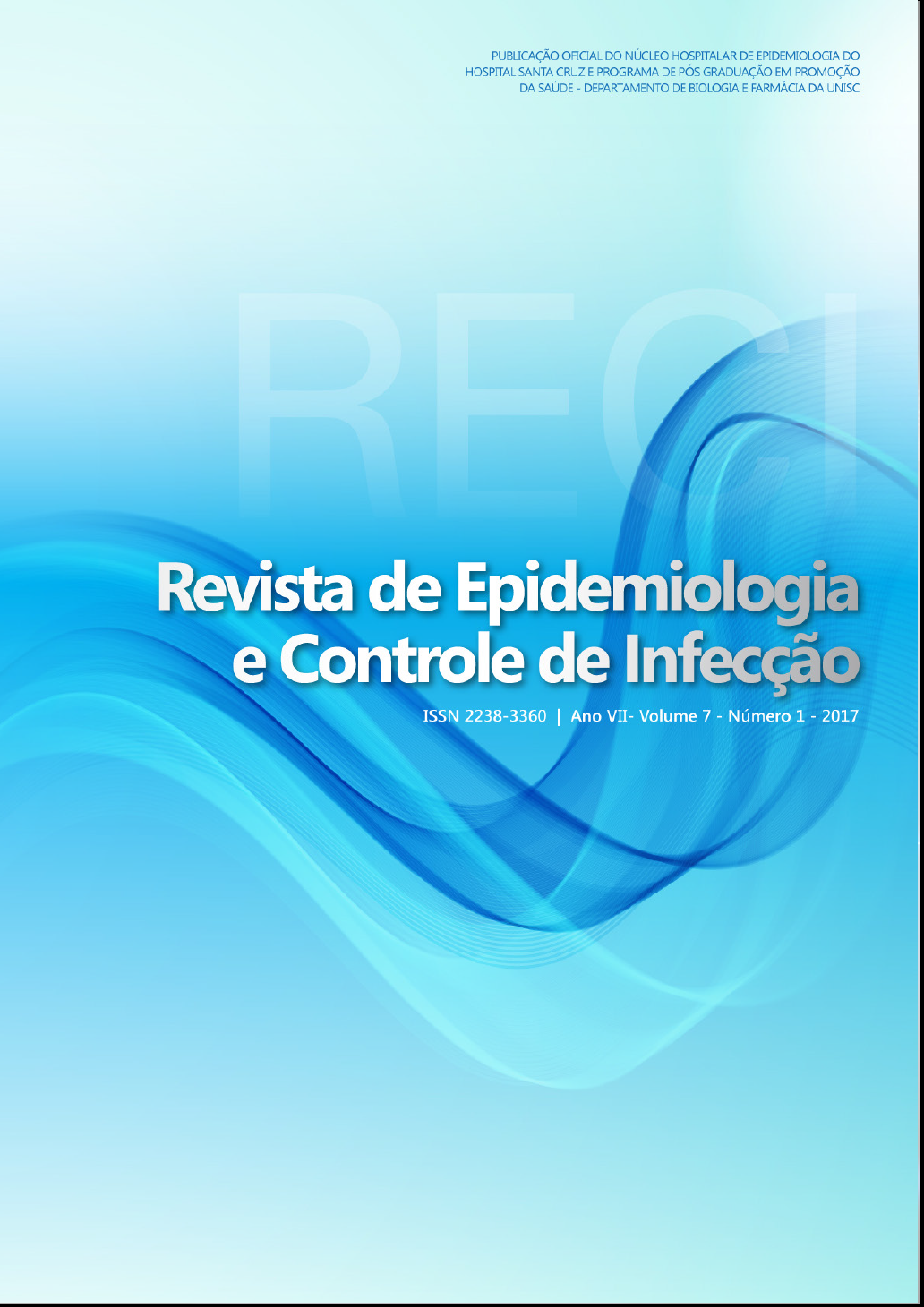Resultados de un Programa Multidisciplinario de Optimización del Uso de Antimicrobianos
DOI:
https://doi.org/10.17058/reci.v7i1.7279Resumen
Antecedentes y Objetivos: Resulta cada vez más necesario mejorar el uso de los antimicrobianos mediante un equipo de profesionales con programas de capacitación al prescriptor, frente al aumento de la resistencia bacteriana y la falta de nuevos antibióticos para tratar infecciones graves provocadas por gram-negativos. Se objetivó evaluar los resultados del Programa de Control de Antimicrobianos (PCA) desarrollado por el Servicio de Control de Infecciones de un hospital universitario del sur del país, desde enero/2013 a julio/2014. Métodos: El PCA es desarrollado por dos médicos infectólogos y una farmacéutica. Son evaluadas todas las prescripciones de carbapenémicos, vancomicina, polimixina B, daptomicina, tigeciclina, linezolida, voriconazol, micafungina y anfotericina B complejo lipídico. En necesidad de intervención, la misma es realizada telefónicamente, con indicaciones al prescriptor o alerta en la historia clínica electrónica. Además, se realizan rondas con los equipos de terapia intensiva cardiológica (UTI-CV) para discusión de caso. Resultados: Fueron evaluadas 5.348 prescripciones, promedio de 297 mensuales. El porcentaje de solicitud de cultivos de los semestres 1 (enero-junio/13), 2 (julio- -diciembre/13) y 3 (enero-junio/14) fue, respectivamente: 25%, 35% y 83%. Fueron realizadas en promedio 70 intervenciones/mes, siendo el porcentaje de aceptación de intervenciones en semestres 1, 2, 3, respectivamente, de 61%, 70% y 84%. La dosis diaria definida (DDD) de meropenem en UTI-CV en el período fue de 231,4 DDD/1000-pacientes-día en el semestre 1; 108,13 DDD/1000/pacientes/día en el semestre 2 y 83,79 DDD/1000-pacientes-día en el semestre 3. Conclusión: Nuestros datos permiten concluir en que acciones como: incentivo del tratamiento dirigido (recolección de cultivos), educación y feedback al prescriptor (indicando el uso racional) y participación activa en rondas junto a los equipos asistenciales, pueden ser estrategias de lucha contra la resistencia microbiana. Palabras clave: Controle de infecções. Antimicrobianos, Pesquisa Interdisciplinar.Descargas
##submission.downloads##
Publicado
Cómo citar
Número
Sección
Licencia
The author must state that the paper is original (has not been published previously), not infringing any copyright or other ownership right involving third parties. Once the paper is submitted, the Journal reserves the right to make normative changes, such as spelling and grammar, in order to maintain the language standard, but respecting the author’s style. The published papers become ownership of RECI, considering that all the opinions expressed by the authors are their responsibility. Because we are an open access journal, we allow free use of articles in educational and scientific applications provided the source is cited under the Creative Commons CC-BY license.


